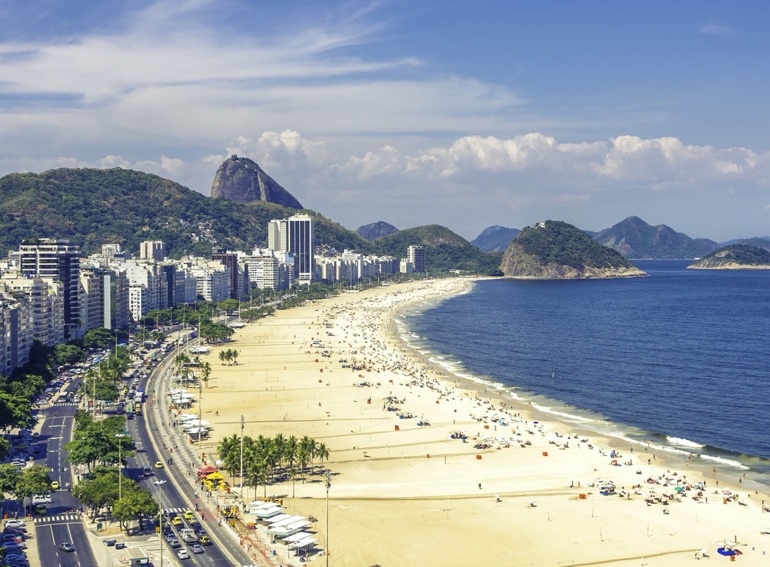RIO DE JANEIRO, BRAZIL – The acting Mayor of Rio de Janeiro Jorge Felippe decided to “isolate” Copacabana during New Year’s Eve to prevent crowds. Only residents will be allowed to travel in Rio’s South Zone neighborhood.
The decision was taken on Wednesday after Felippe’s meeting with acting governor Cláudia Castro. They met at the Guanabara Palace and Castro proposed closing off the entire neighborhood.

Felippe said in an interview that “vehicles are forbidden access from 8 PM, and also collective vehicles, the use of collective vehicles from 8 PM is discouraged, as well as the subway, from Central do Brasil to Barra da Tijuca”.
The acting Mayor further said that he is considering preventing tour buses from entering the city of Rio de Janeiro – he is to discuss a solution with the Federal Highway Police.
“We have built an alternative with the state government today, we will block access to the city of Rio de Janeiro to any tour buses bound for Rio de Janeiro’s beachfront. It is important that everyone is aware that they will be blocked, that they will not have access to the city of Rio de Janeiro,” said the acting Mayor.
As a result, street vendors from regions where celebrations are traditionally held will also be prevented from working. Felippe said that the famous beach bar kiosks and tents will not be allowed on the sand.
“Any kind of enclosure around bars, any kind of event is forbidden, the occupation of street vendors stationed on the sand, enclosures on the beach, what occurred last year is strictly forbidden this year. We have to seek the preservation of life and health first and foremost, no one is unaware of the gravity of Covid-19. So, austere measures are demanded from public bodies and we will surely find solidarity, commitment and responsibility on the part of the population in order to prevent the rise of contagion in the city.”
Other measures were announced by the municipality to “discourage crowds on the beachfront while maintaining business activities”:
Ban on parking on the waterfront and surrounding streets from 00h01 on December 31st;
Ban of public transports to Copacabana and Barra da Tijuca from 8 PM on December 31st;
Inspection roadblocks in the city limits to prevent access to the waterfront by bus and charter vans;
Bars may operate provided no tickets are sold, shows are held, no sound instruments and no enclosures.
Last week, Rio announced the cancellation of all official end-of-year parties. According to the City Hall, the decision was based “on the safety of all and respect for all victims”.
The Rio de Janeiro City Hall had already announced on December 17th that private parties would not be allowed in bars along the city’s waterfront during New Year’s Eve.
The measure was agreed in a meeting with the president of Riotur, Fabricio Villa Flor, and the president of Orla Rio, João Marcello, which manages the more than 300 bars on Rio’s beachfront, from Leme to Pontal.
“No enclosures, shows or any event with ticket sales will be allowed along the shoreline, either on the sand or boardwalk,” said the City Hall.
The decision was reached three days after the MPF (Federal Prosecutor’s Office) lodged a civil lawsuit to prevent private parties along Rio de Janeiro’s shoreline at the turn of the year – in early December, bars on Copacabana’s waterfront were selling tickets for private parties starting at R$400.

